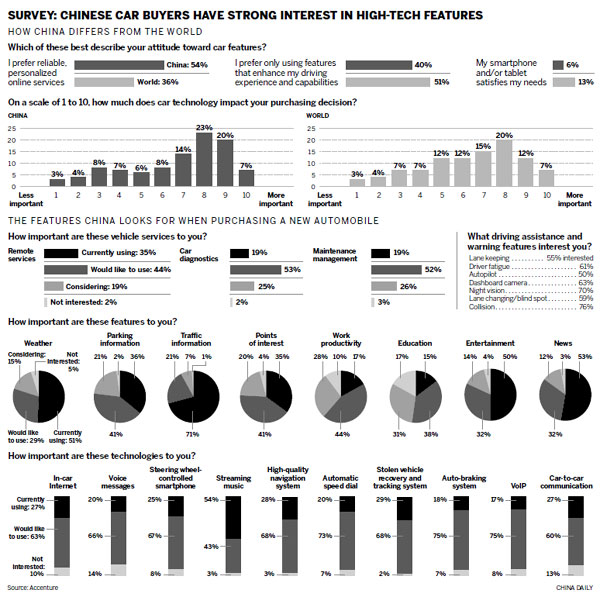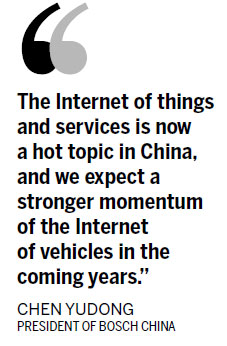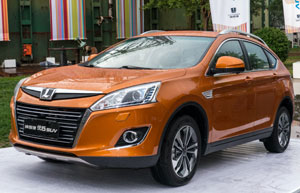Connectivity helping to drive up demand for new autos in China
By Li Fangfang (China Daily) Updated: 2014-06-01 07:28 |
Chinese consumers also voiced much higher requirements for transportation information, including navigation, traffic conditions, speed camera, and parking lots and POI (point of interest) locations.
In addition, Chinese drivers came in at No 1 in terms of connectivity technology and service usage, with the highest expectations for new innovations in the future.
Although fully automatic driving is still in the concept car stage and has not officially hit the road, Accenture's survey indicated that a whopping 90 percent are interested in related technologies, such as lane-change warning systems, crash warning systems, and automatic braking and parking systems.
The company noted such a significant demand will help promote the wide application of automatic driving technologies.
Seeing interest increasing, especially in China, German technology provider Bosch GmbH is reaching out to new business areas and promoting new business models.
The company estimated that more than 75 percent of the global population and 6.6 billion devices will be connected to the Internet by 2015, which will bring more convenience to daily life and significantly improve energy efficiency.

"The Internet of things and services is now a hot topic in China, and we expect a stronger momentum of the Internet of vehicles in the coming years," said Chen Yudong, president of Bosch China. "As an innovative company, Bosch is ready for the business opportunities it brings us."
Leveraging its sensor and software technologies, Bosch is working to establish the frameworks and foundations of connectivity.
Bosch Sensortec, a subsidiary that specializes in MEMS (Micro-Electro-Mechanical Systems) technology, launched its Asia Pacific headquarters in Shanghai in 2013.
The company develops and markets micro-mechanical sensors for consumer electronics, mobile phones, safety systems, industrial technology and logistics. Every other smartphone across the globe now uses Bosch sensors.
While MEMS technologies are regarded as the hardware basis for connectivity, Bosch Software Innovations has launched a pilot project for promoting electric vehicle application in Shanghai in 2013.
Automated driving is another example of the potential advantages of connectivity technologies.
With components such as sensors, cameras and electronic control units, all of which can enable connectivity, Bosch's driving assistance functions are among those that are leading the way to automated driving.
- China-ASEAN trade up 1.2% in Jan-May
- 17b yuan lock-up shares eligible for trade
- China property market down cycle may last longer: Moody's
- Domestic players to challenge global companies
- Big names have to find the right approach in China
- British to the very roots? Not quite
- Home advantage for management consultants
- A market that's not such a hot property

















